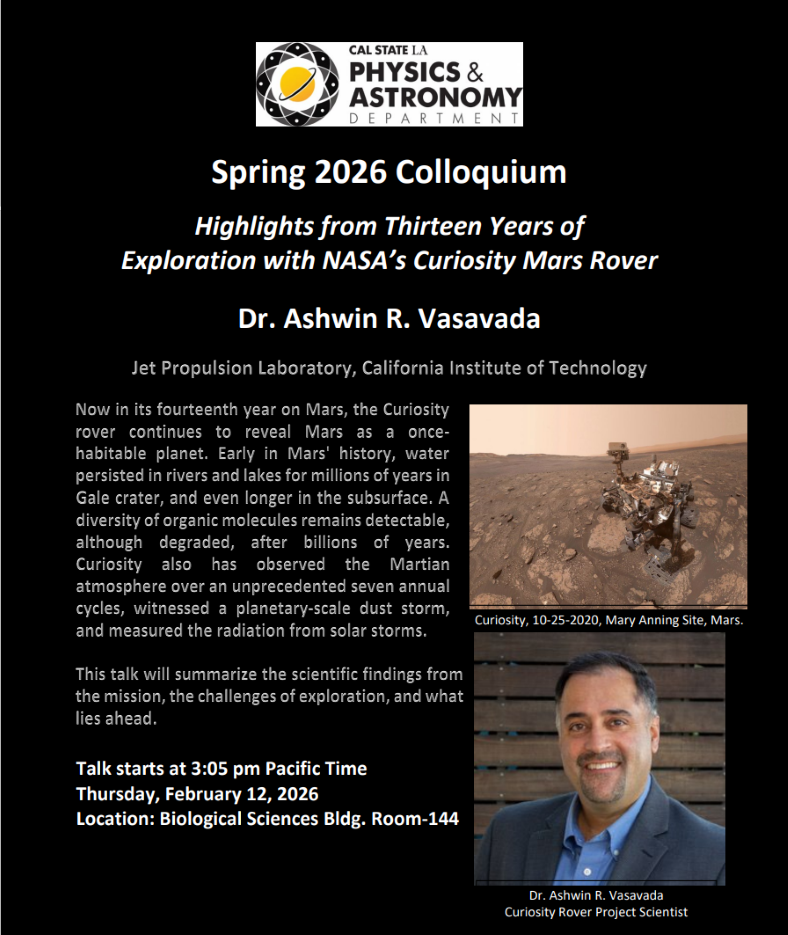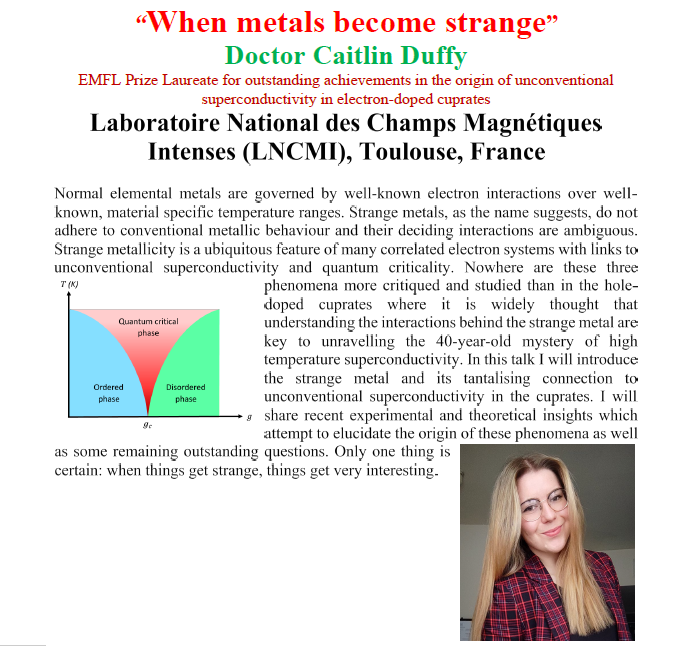Via Zoom:
https://calstatela.zoom.us/j/86730359735
Archived access to the Zoom recording of Dr. Caitlin Duffy's talk from October 9, 2025, "When Metals Become Strange"
Note: You will be prompted to login to Zoom; use passcode: 0#U@FS5$
Spring 2026 Colloquium Schedule
To Be Announced

